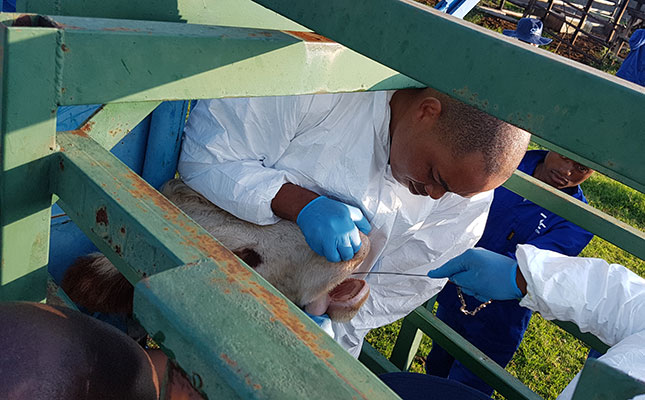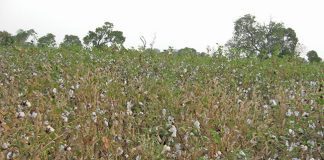
Photo: Supplied
The Department of Science and Innovation’s (DSI) Bio-economy Strategy aims to drive South Africa’s bio-economy through the utilisation of the country’s diverse natural resources to improve human health, address food security and contribute to economic growth.
The strategy also seeks to use South Africa’s bio-based resources to create and grow biotechnology-based industries. This is crucial for creating jobs, contributing to GDP, boosting exports, building industries and addressing market failures.
The Technology Innovation Agency (TIA), an entity of the DSI, plays an important role in the implementation of the Bio-economy Strategy. It is mandated through the Technology Innovation Agency Act (No. 26 of 2008) to promote the development and use of innovations and technologies in the interest of the public.
The role of TIA
Through its strategic bio-economy pillar, the TIA supports the translation of South Africa’s knowledge resources into sustainable bio-based solutions that will have an impact on the convergence of specific focus areas, namely health, indigenous knowledge systems, agriculture, and industrial biotechnology.
In addition, the TIA manages cross-cutting technology platforms, and technology innovation clusters and programmes.
The agriculture sector is central to creating employment opportunities, fostering economic growth, reducing poverty, and improving food security in South Africa. In this regard, the TIA supports the development of technologies and innovations that promote food safety and security, rural and township development, and economic transformation, and those that create more resilience to climate change across the agriculture value chain.
This is achieved through investment in strategic national agricultural priorities and value chain-focused initiatives to support the creation of an enabling environment for technological innovations in the industry, predominantly supporting the publicly funded development and demonstration of agricultural technology innovations, facilitating commercialisation of de-risked technologies, and improving the diffusion of appropriate agricultural technologies to small-scale and emerging farmers.
The TIA has supported a start-up called AgriViro in its development and demonstration of intellectual property at the University of the Witwatersrand.
The TIA has funded AgriViro to develop novel biopesticides for the control of economically important insect pests such as codling moth (Cydia pomonella), false codling moth (Thaumatotibia leucotreta), the larvae of the African bollworm (Helicoverpa armigera), oriental fruit moth (Grapholita molesta), diamondback moth (Plutella xylostella), fall armyworm (Spodoptera frugiperda), as well as Lepidopteran insects on crops such as peaches, nectarines, plums, cherries, apricots, apples, pears, quinces and nashi.
These environmentally friendly biopesticides are suitable for use in organic farming, and their efficacy against insect pests in high-value crops has been demonstrated in a controlled environment.
Further advancements
Other innovations in plant health and nutrition supported by the TIA include the development and commercialisation of adjuvants for the benefit of crop or plant health.
iBATECH is an efficacious natural botanical adjuvant with antimicrobial properties.
It is formulated to protect plants against pesticide-resistant pathogens. This technology was developed at the University of the Western Cape and is currently being demonstrated at a commercial scale.
iBATECH can be used in combination with agrochemical pesticides, in tunnel settings, and in organic farming. It is cost-effective and reduces the dosage of agrochemical pesticide required. Furthermore, its application reduces residual pesticide levels in crops and enhances agrochemical pesticide efficacy by reversing pesticide resistance.
Innovations in animal health and nutrition have been supported and funded by the TIA for the improved health of livestock, as well as the advancement of diagnostic technologies to minimise the spread of zoonotic diseases.
The TIA funded the development of a point-of-care (POC) diagnostic test kit for the early detection of foot-and-mouth disease (FMD) in livestock that can be used in remote and rural areas. The use of this technology allows for the rapid detection of FMD and empowers livestock farmers to quickly isolate affected animals, thereby preventing the spread of the disease. This innovation was developed by the Council for Scientific and Industrial Research (CSIR) and was licensed to a start-up, TokaBio.
Currently, it takes a week or two to receive FMD test results from laboratories. The POC diagnostic kit is a Fourth Industrial Revolution-enabled device that facilitates a rapid turnaround time for test results. The results are made available in just an hour on a mobile device.
The POC device is also connected to the South African government regulator’s database, providing real-time information on the disease status of livestock, thus adding value to government’s livestock disease surveillance programme.
The innovation is also currently being developed further to include the detection of avian influenza. The early detection of these diseases has obvious economic benefits for both the emerging and commercial livestock farmers who adopt this technology.
Outside of South Africa, the POC technology has been tested in Lesotho, Zambia and Rwanda.
Technology clusters
The TIA has established three technology innovation clusters in agriculture, namely the Animal Health Cluster, the Beef Genomics Programme, and the Dairy Genomics Programme. The Animal Health Cluster is aimed at stimulating and intensifying technology innovation within the animal health sector in order to increase the development and uptake of animal diagnostics and vaccines to market.
The establishment of this cluster advocated for the participation of various institutions within the National System of Innovation. These include science councils and universities (with seed funding provided by the National Research Foundation and the TIA for research and development), as well as the private sector and key state-owned entities such as Onderstepoort Biological Products.
The TIA has also supported the development of an organic nutraceutical broiler feed enhancer, as well as an antibiotic replacement additive that boosts poultry weight gain by 30%.
These two products were registered for regulatory approval for use in the market in 2016.
A collaboration between the CSIR and the Agricultural Research Council (ARC) for the development of a slow-release biocontrol sheet, to control fungi on produce during storage without affecting the taste or colour of the produce, was funded by the TIA. Via organic means, the technology controls phytosanitary diseases such as grey mould (Botrytis cinerea) in table grapes, and will benefit South Africa’s exporters of fresh produce.
The TIA is the implementing agent of the Agriculture Bioeconomy Innovation Partnership Programme (ABIPP), which is a partnership between the DSI and industry. This programme funds, facilitates and manages multidisciplinary and multi-institutional research programmes in agricultural bio-innovation, product and process development, and services.
It encourages collaboration on national priorities and promotes the global competitiveness of the local agriculture sector through the utilisation of developed technologies and plant breeders’ rights.
The ABIPP recently funded Cotton South Africa for its procurement of locally made cotton-baler machines, which will be used by small-scale farmers to lower their input costs by between 8% and 12%. This intervention by the TIA is aligned with its mandate to support the diffusion of technologies to emerging farmers for their increased participation in the sector, as well as their productivity and profitability.
The TIA leverages partnerships and funding for its investments to make a tangible impact in the agriculture industry. A notable example of this is support it provides to the National Agricultural Marketing Council for its project titled ‘Feasibility Assessment: A value chain analysis of the cassava subsector in South Africa’, to evaluate high-starch-yielding cassava cultivars bred by the ARC and funded by the TIA.
The feasibility assessment includes small-scale and emerging farmers in rural and marginalised communities, as well as farmers in the cassava production regions in Limpopo, Mpumalanga, and KwaZulu-Natal.
The outcomes of this study will be accessible to farmers and communities and will aid them in subsistence farming, food and animal feed production, and industrial purposes, such as the paper industry.
The leveraged partnerships in the establishment of this cassava value chain are the Department of Trade, Industry and Competition, the South African Cassava Growers’ Association, and other parties in the value chain.
The TIA recognises that the agriculture sector is a key driver of economic growth, most notably in the creation of employment and food security, as well as several other benefits realised through the agricultural multiplier effect. Through the funding it provides, it supports the development and commercialisation of local innovations and the associated intellectual property, as well as in-bound technologies.
Visit tia.org.za.













